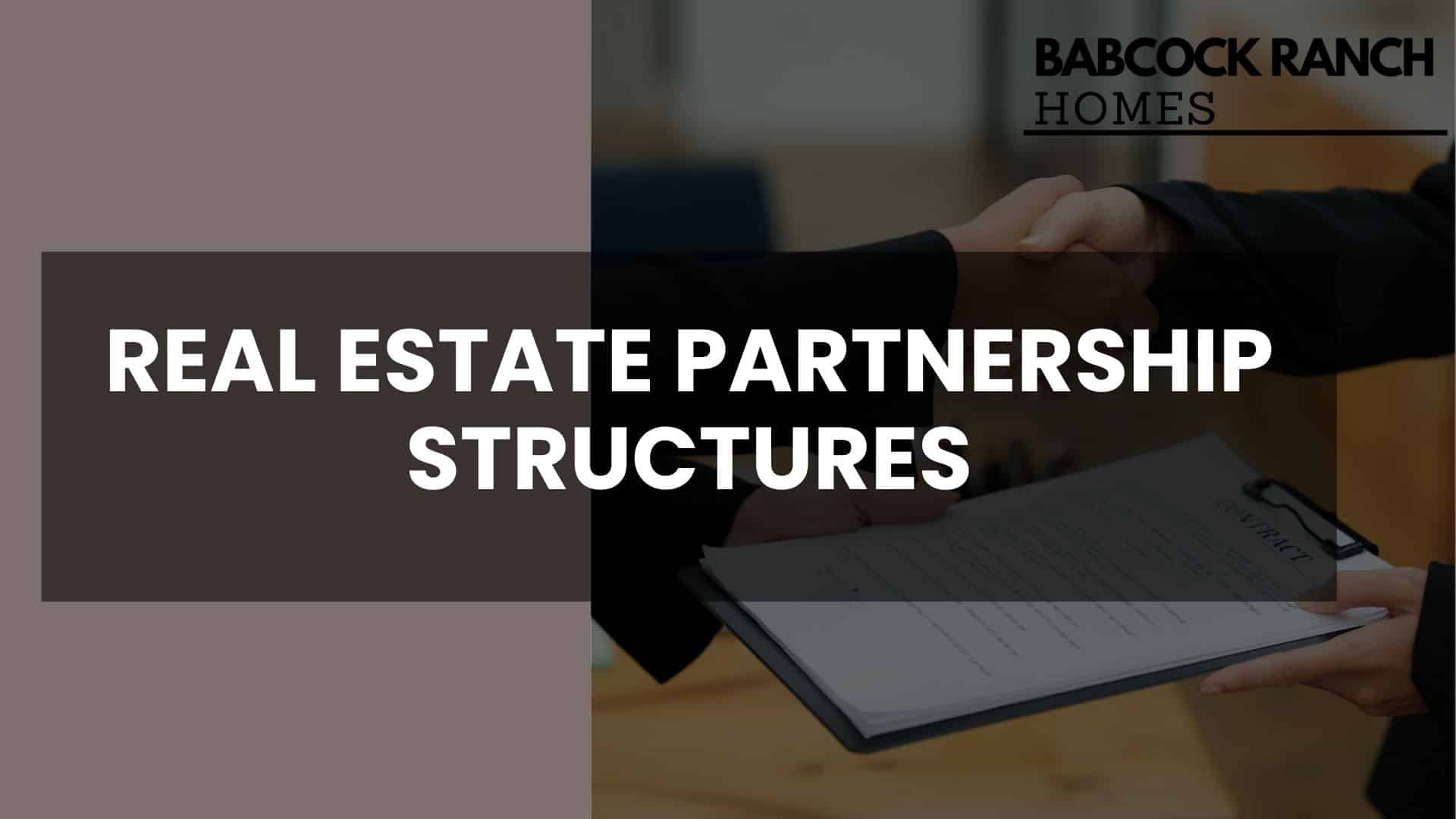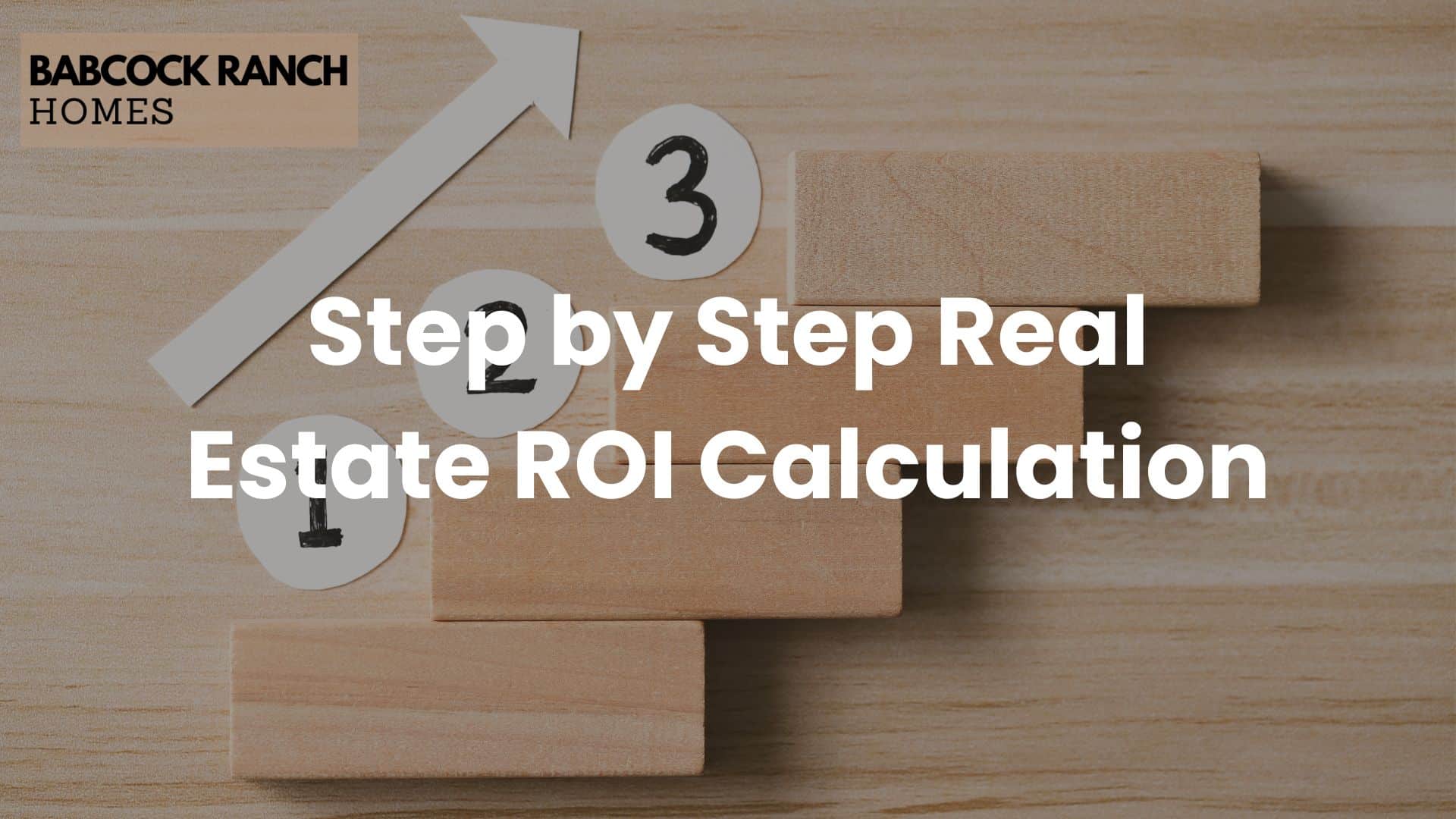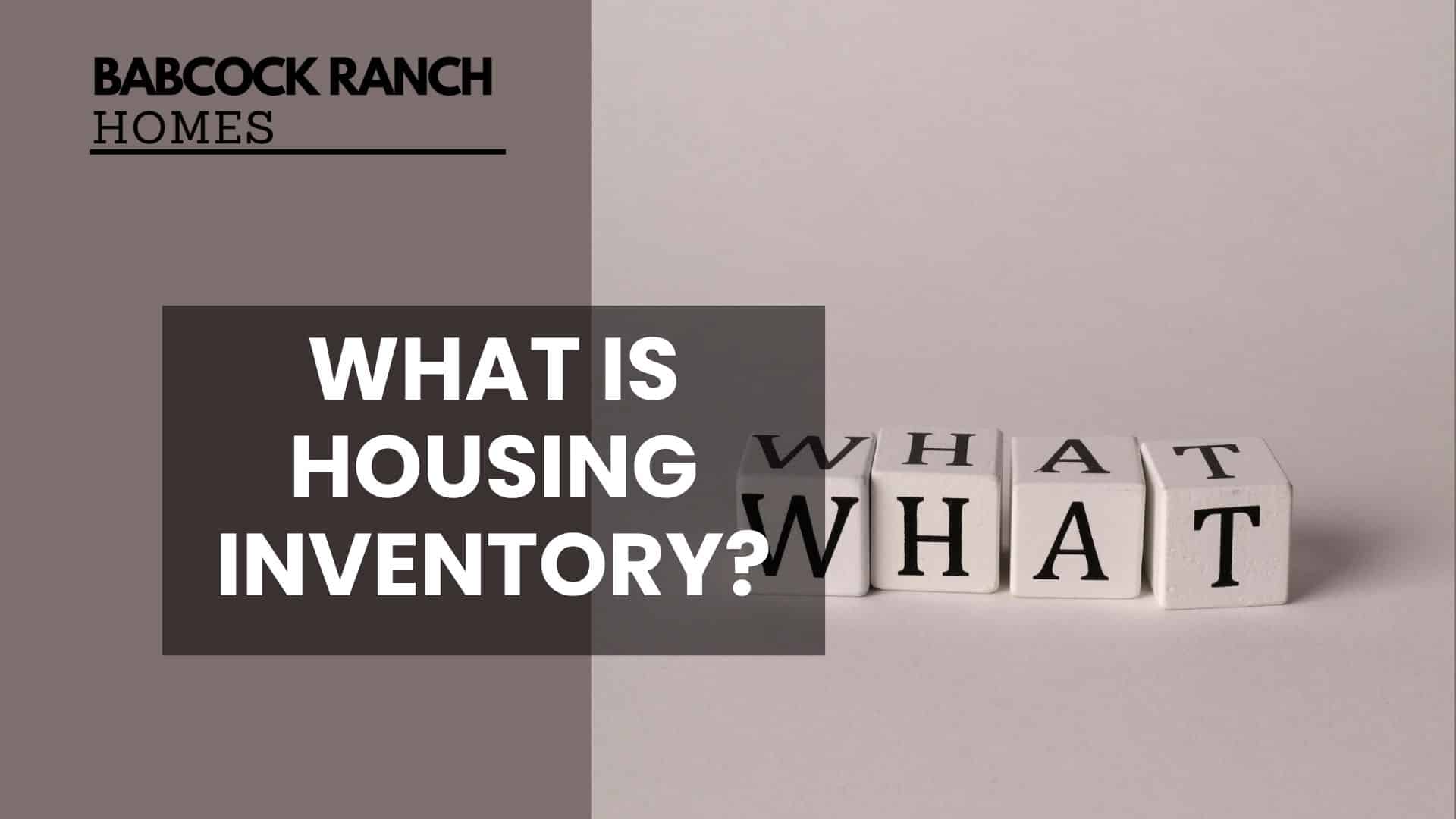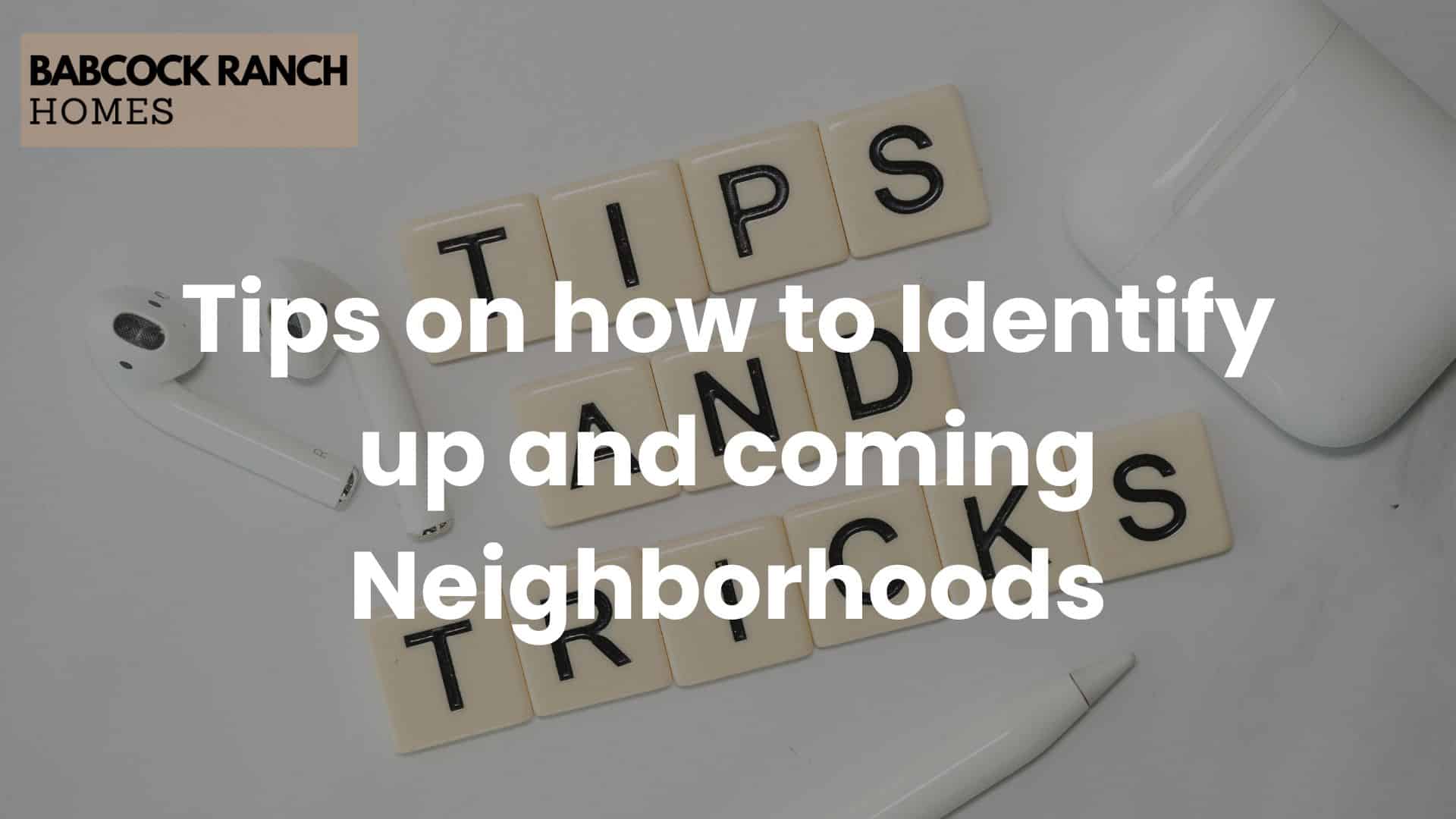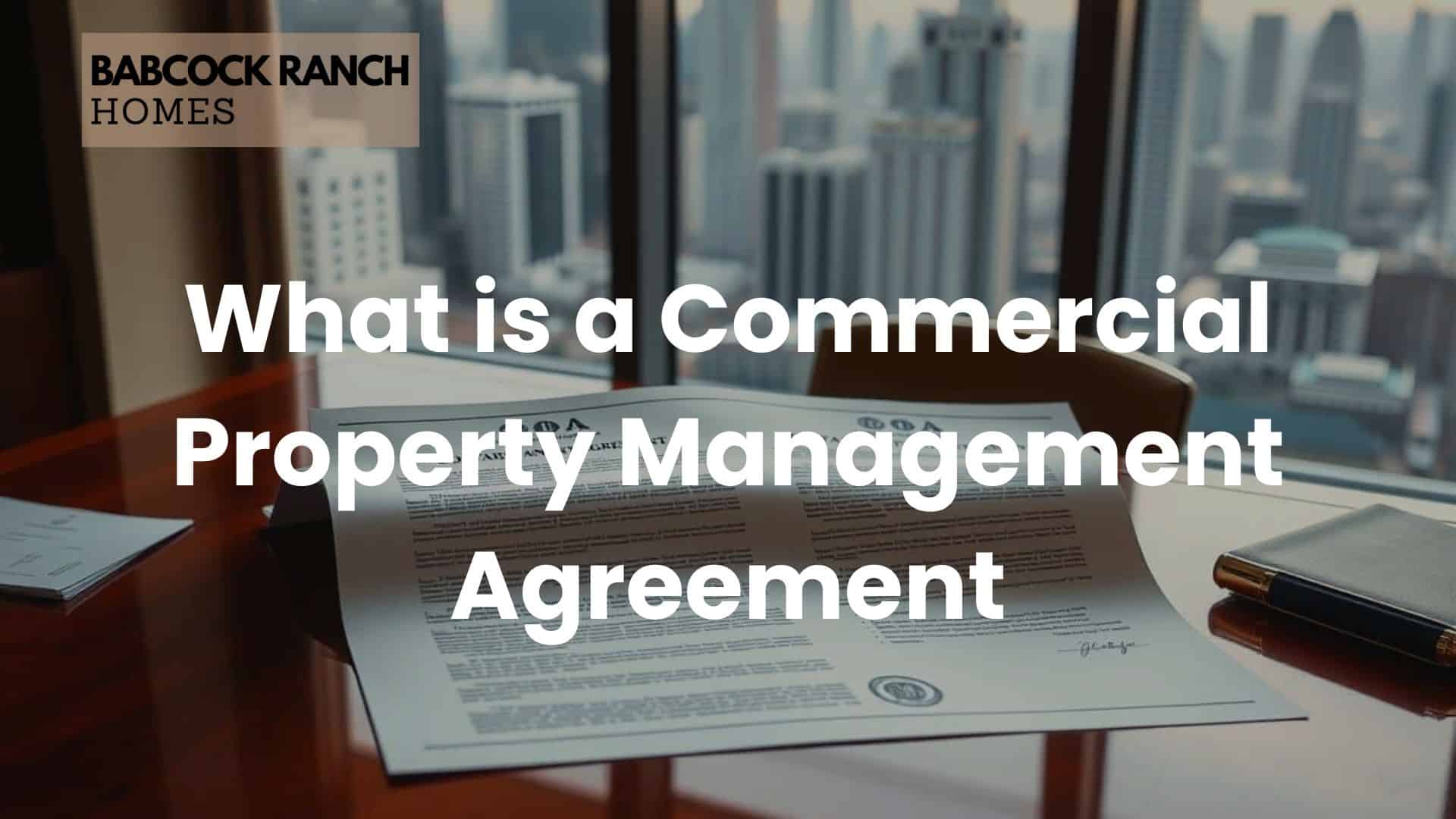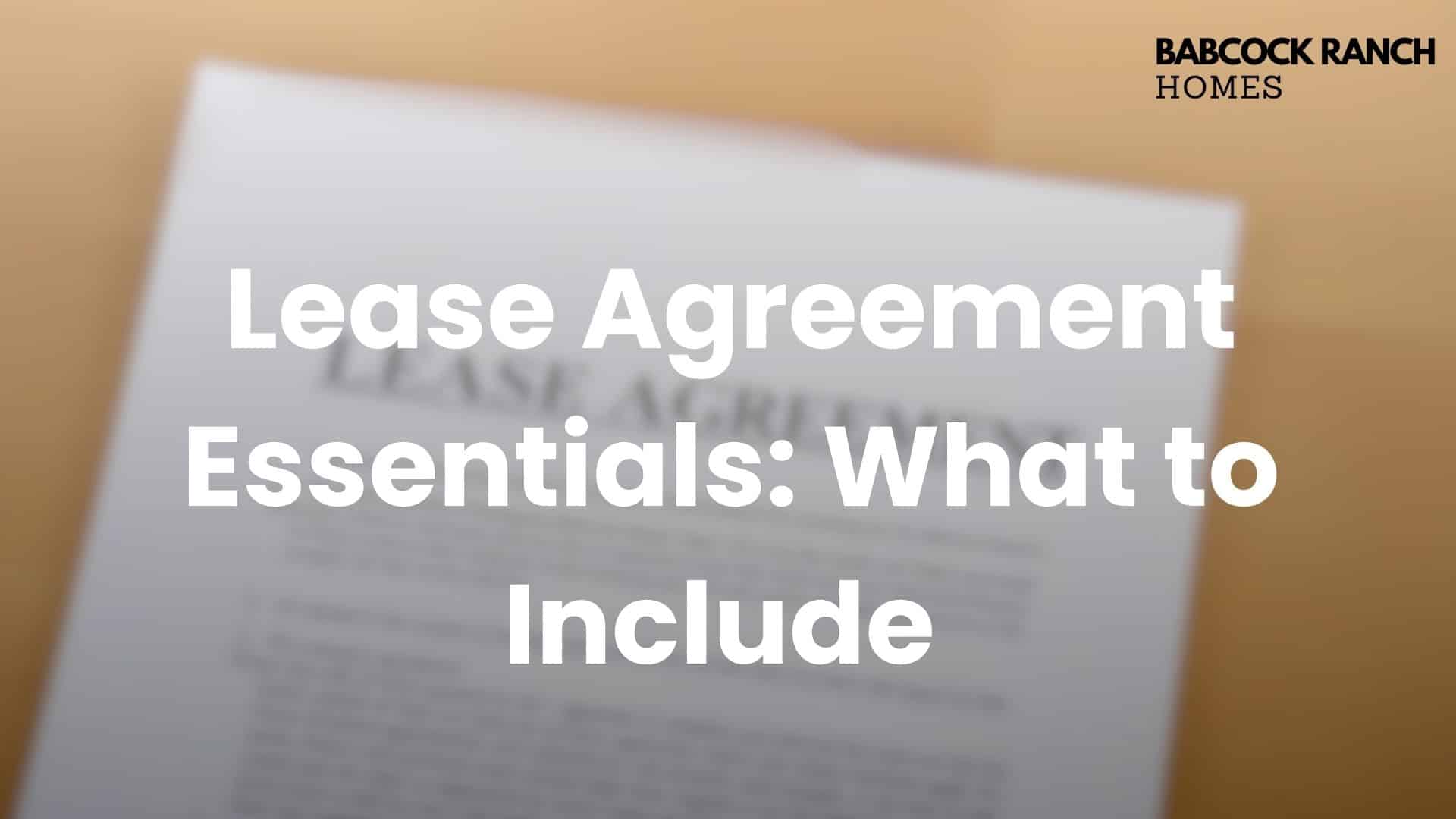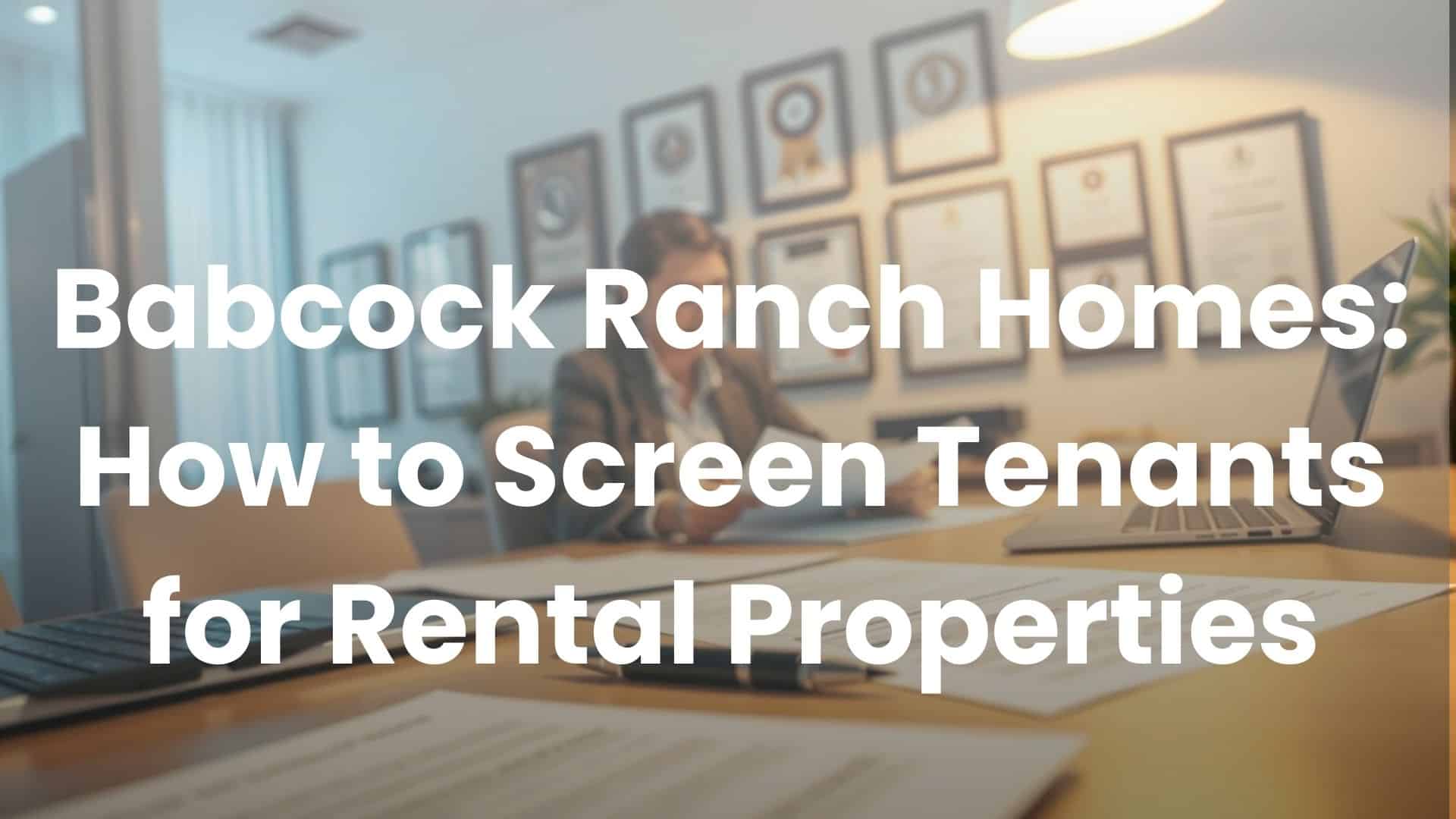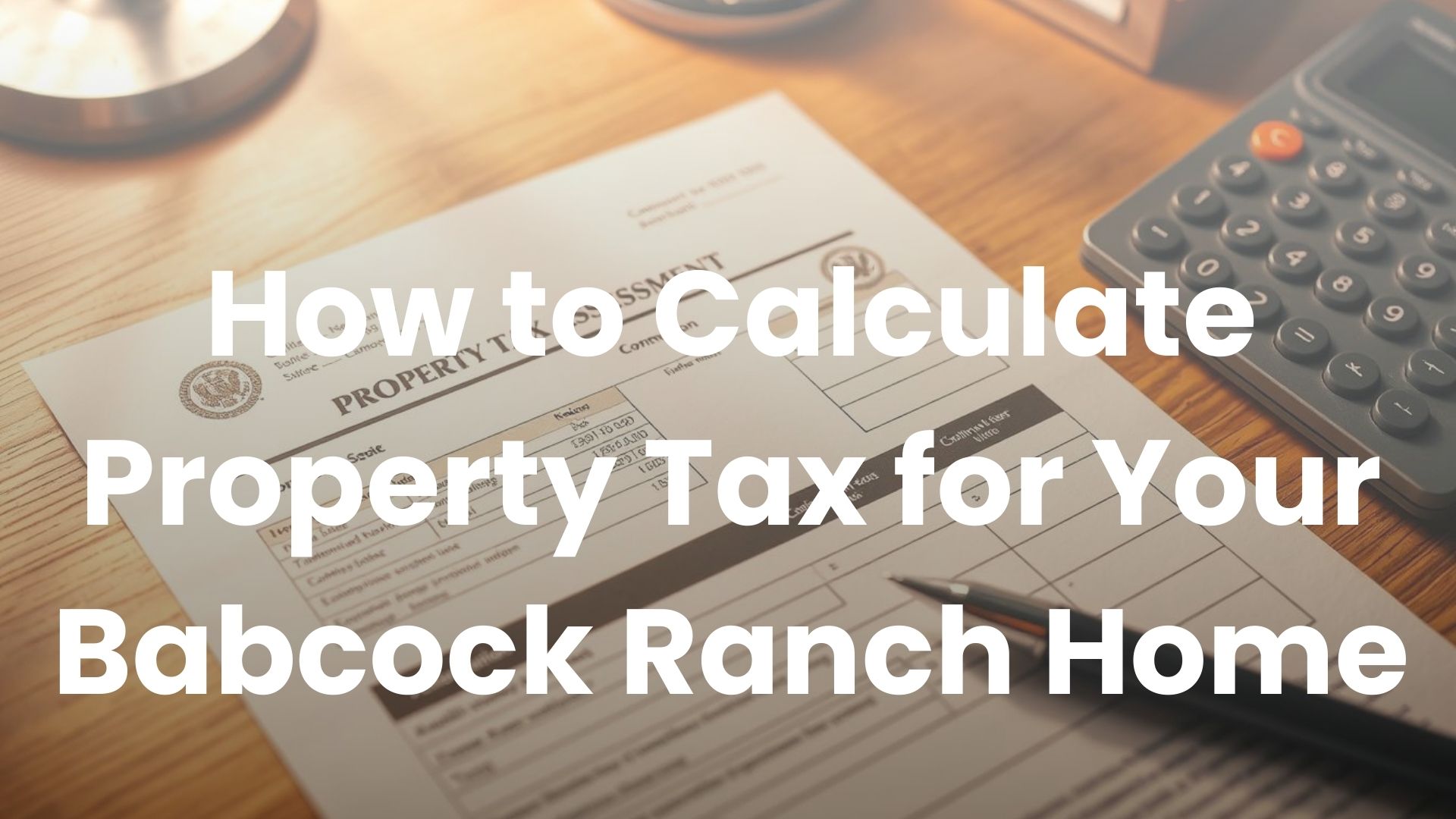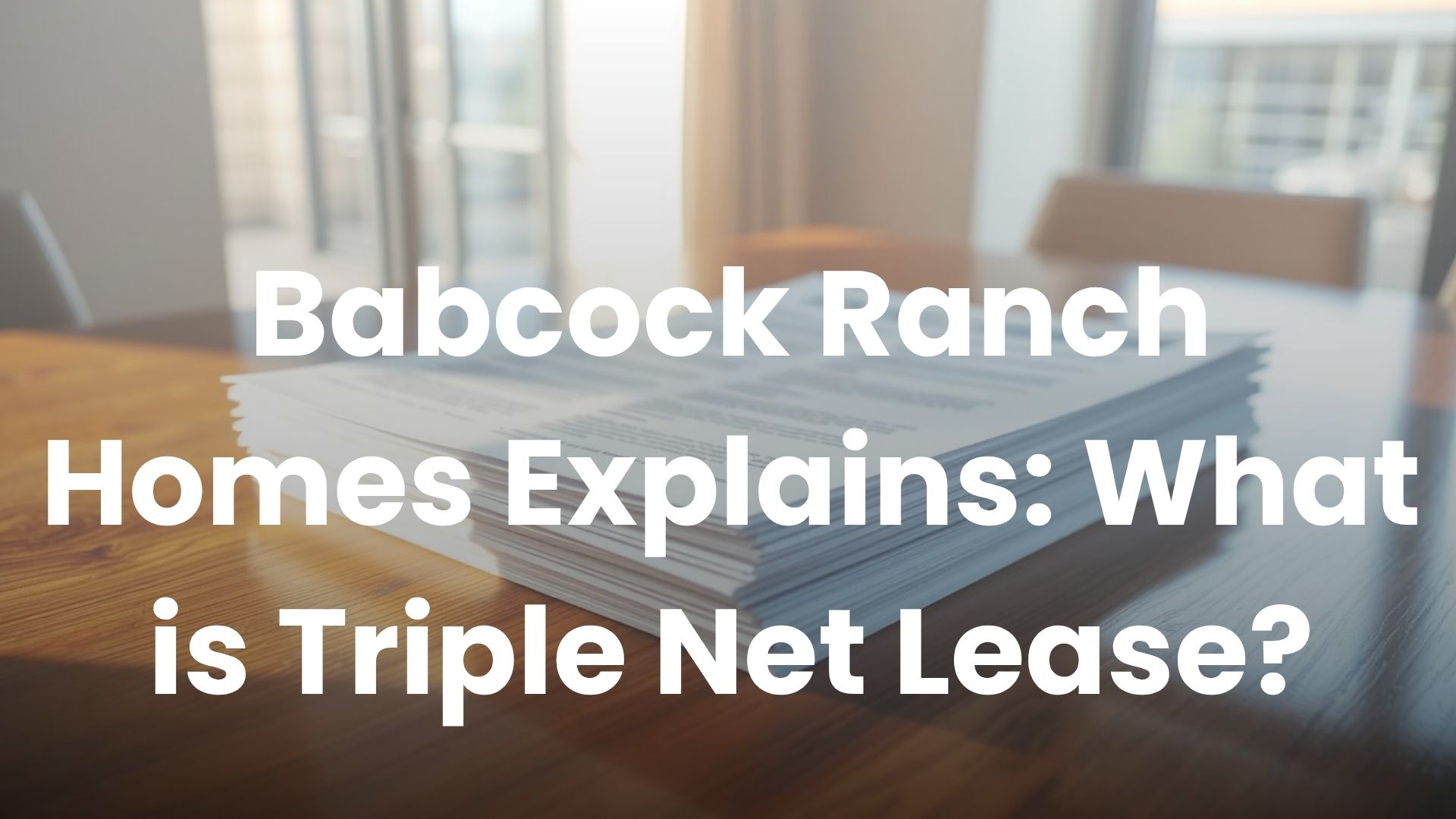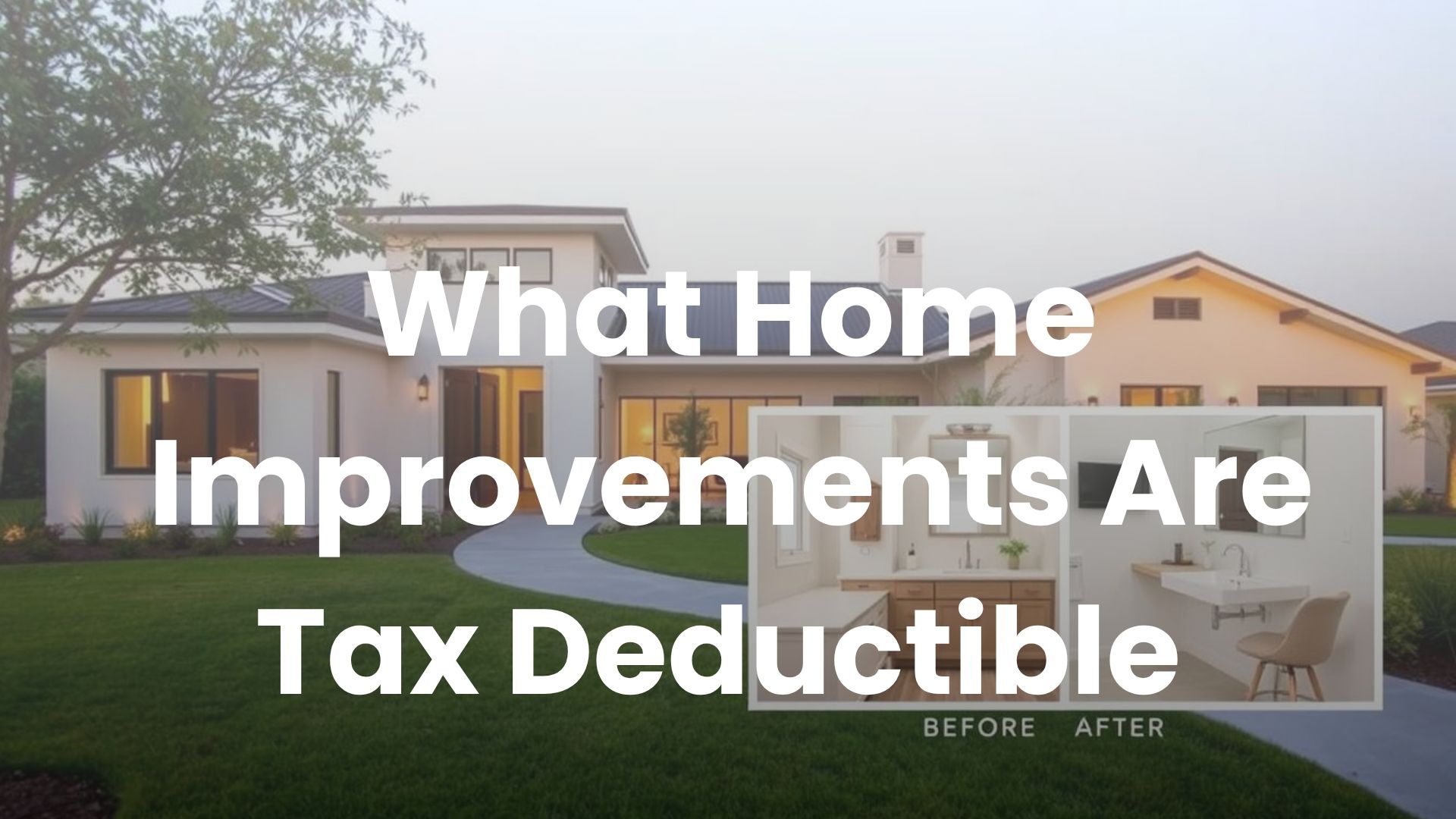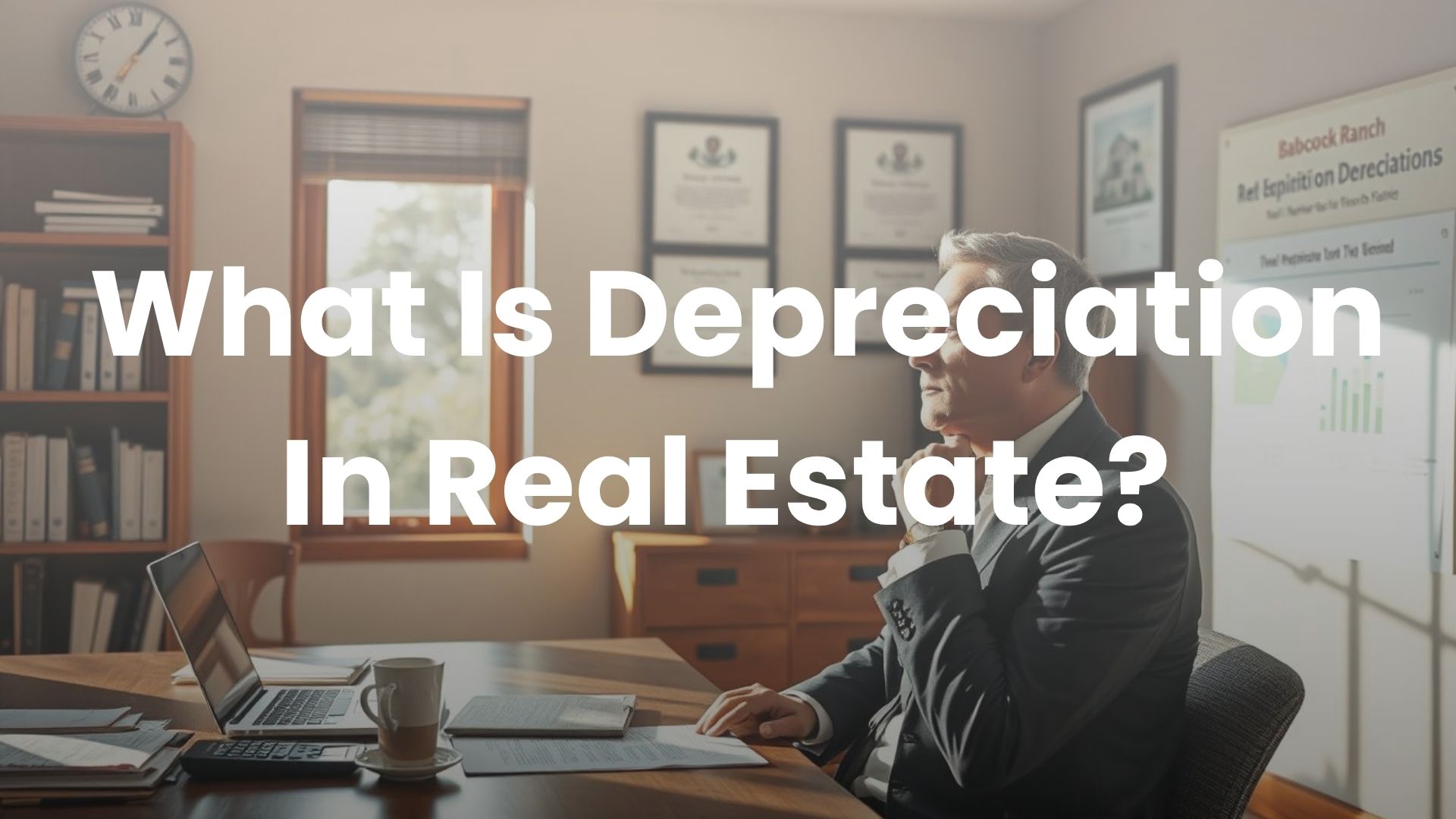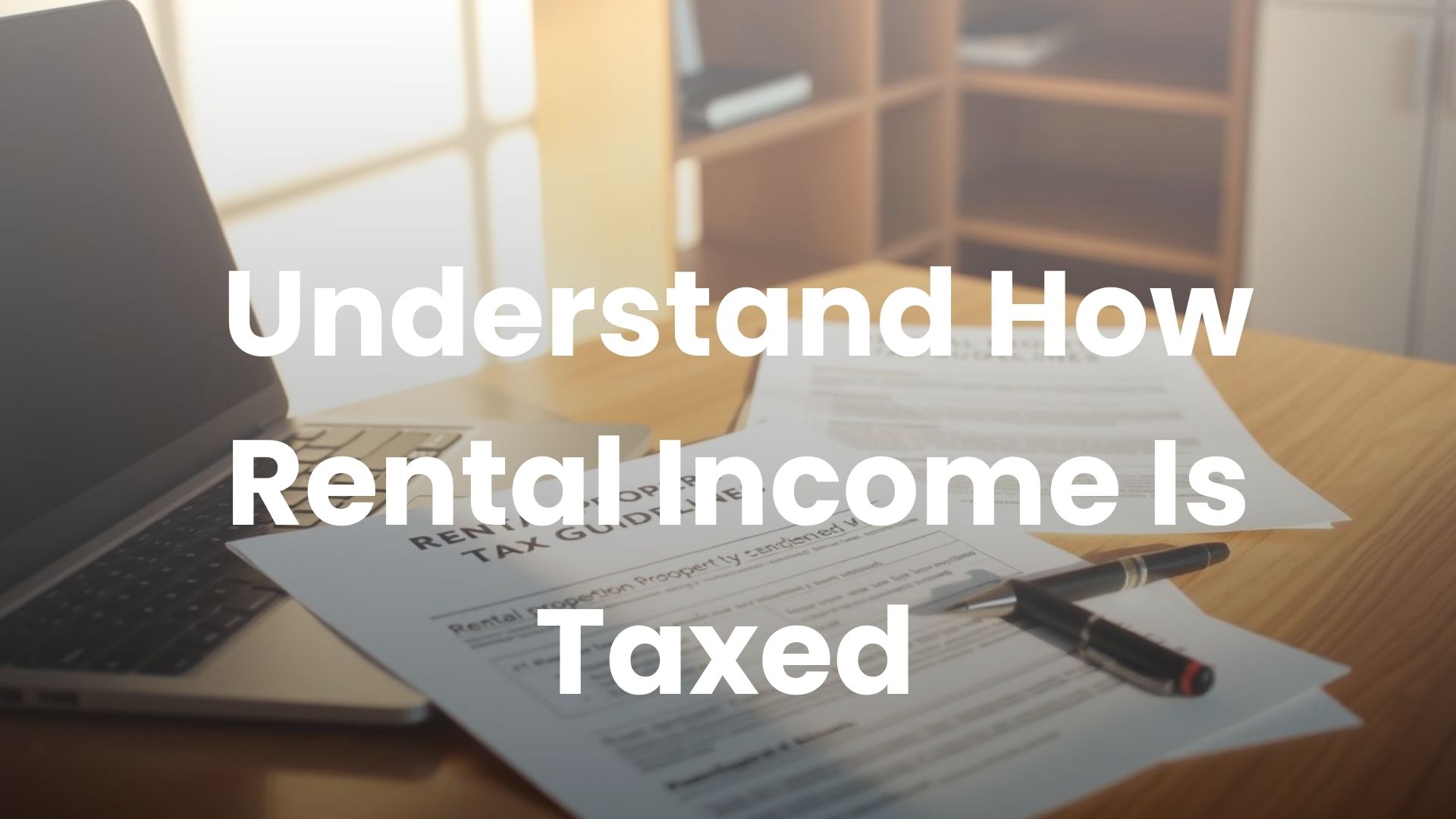Buying a home is a big financial decision. At Babcock Ranch Homes, we help you through every step. We know how complex buying a home can be.
The real estate market is complex. As of the second quarter of 2023, the median home price in America was over $416,000. It’s important to be well-prepared and strategic.
Looking for a house is more than just finding a pretty property. It’s about knowing your finances, understanding the market, and making smart choices. These choices should match your long-term goals.
Key Takeaways
- Understand your financial capacity before house hunting
- Research home purchase considerations
- Evaluate credit score and mortgage eligibility
- Plan for down payment and closing costs
- Consider long-term investment
- Conduct thorough property inspections
- Assess neighborhood and community factors
Understanding Your Budget and Financial Readiness

Buying a home needs careful financial planning. First-time buyers should know their finances before looking for homes. Good budget management is key to a successful real estate deal.
Being financially ready is more than just saving money. It’s about a full financial check-up and planning.
Calculating Your Maximum Affordable Purchase Price
The 28/36 rule helps figure out how much you can afford. It says:
- Don’t spend more than 28% of your monthly income on housing
- Keep total debt payments under 36% of your monthly income
Breaking Down Financial Considerations
| Financial Metric | Recommended Range |
|---|---|
| Debt-to-Income Ratio | Below 43% |
| Credit Score for Conventional Loans | 620 or Higher |
| Down Payment | 3.5% – 20% |
Preparing for Down Payment and Closing Costs
Homebuyers should think about extra costs beyond the home’s price. Closing costs are usually 2% to 5% of the home’s value. Having an emergency fund for three to six months of living expenses is also important.
Understanding Credit Score Requirements
Your credit score affects your mortgage. A better score can mean lower interest rates, saving you money over time. Here’s what different loans need:
- FHA Loans: Minimum 580 credit score
- Conventional Loans: Minimum 620 credit score
- VA Loans: Flexible credit for veterans
Good financial planning turns first-time home buyer tips into real steps toward owning a home.
Location Considerations and Neighborhood Analysis
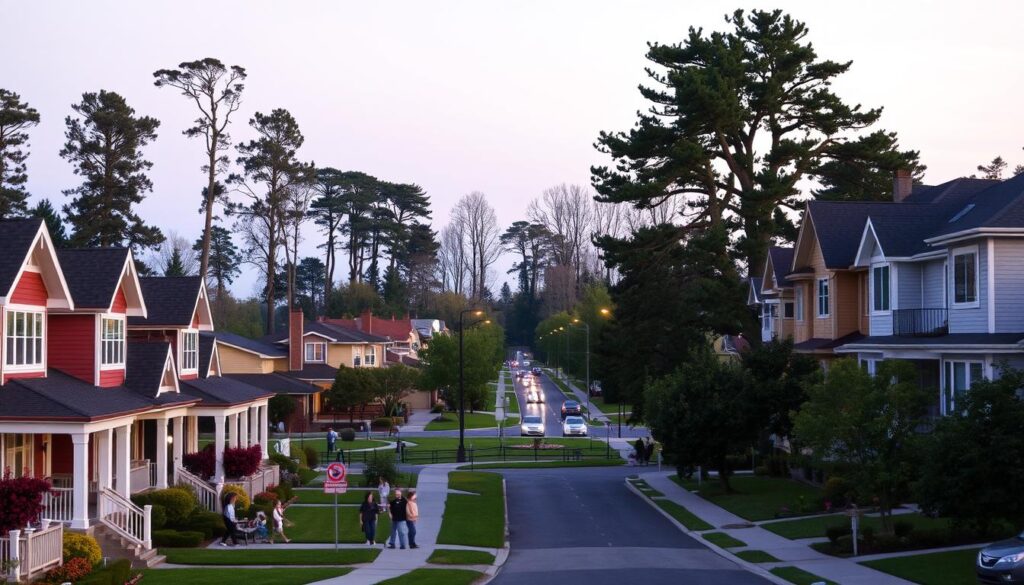
Starting your real estate journey means understanding location is key. Looking at homes is more than just the house itself. It’s about the whole neighborhood that will shape your life.
Buying a home needs a smart approach to location. Experts say a house’s value is tied to its surroundings.
- Being close to good schools can increase home value by up to 20%
- Areas with low crime rates draw more buyers
- Plans for future development can affect property value
When looking at homes, think about these important neighborhood factors:
| Location Factor | Impact on Property Value |
|---|---|
| Public School Quality | High positive impact |
| Crime Rates | Direct correlation to desirability |
| Proximity to Employment Centers | Increases long-term value |
Today, millennials want homes in areas that can grow. Cities with little room for growth see higher property values. So, picking the right location is key in your real estate journey.
The right location can turn a good house into a great investment.
By carefully looking at neighborhoods, you make a smart choice. You balance your current needs with future financial gains.
What to Look for When Buying a House
When searching for a home, it’s important to know what to look for. You should check the property’s structure, inside features, and outside parts. This can help you avoid costly repairs later and make a wise choice.
Don’t just look at how the house looks. Home inspectors say it’s key to check the property’s important parts. This way, you can make a smart choice.
Structural Elements to Examine
Checking the house’s structure is a top priority. You should look at:
- Foundation stability
- Roof condition and age
- Wall and ceiling structural integrity
- Potential signs of water damage
Roof replacements can cost $9,000, and roofs made of asphalt last about 20 years. Fixing the foundation can cost between $2,000 to $7,000. So, it’s vital to inspect well at first.
Interior Features to Consider
The inside of the house is also important. Look at:
- Room layout and flow
- Natural lighting
- Storage space availability
- Condition of major systems
HVAC systems usually last 10-25 years and cost about $7,000 to replace. Water heaters last 10-15 years and cost $900 to $1,800 to replace.
Exterior Components to Evaluate
The outside of the house tells you a lot about its health and upkeep needs:
- Landscaping condition
- Drainage systems
- Outdoor living spaces
- Potential environmental risks
Getting a full inspection costs $300 to $500. But, it can save you a lot of money on unexpected repairs.
Property Size and Layout Requirements
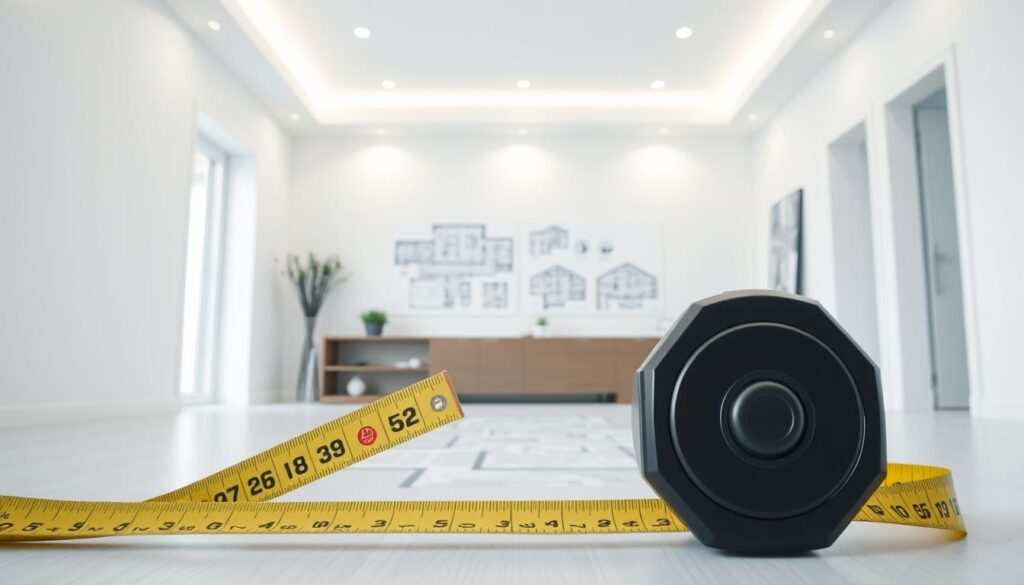
When looking for a home, knowing the size and layout is key. The perfect home meets your current needs and future changes. It’s important to find a place that grows with you.
Choosing the right home means looking at several important factors:
- Square footage that fits your family size
- Flexible spaces for living
- Options for future changes
- Room layout and how it works
The ideal home size for most families is between 2,100 to 4,000 square feet. On average, homes are about 2,422 square feet. This size is usually enough for most families.
Think about these layout points:
- Bedrooms that match your family size
- Enough bathrooms
- Smart bedroom placement
- Space for a home office or other uses
Experts say each person needs about 700 to 1,000 square feet. Look for homes that can grow with you. They should offer space for everyone and privacy too.
Choosing a home is not just for now. It’s about planning for your future.
When you’re shopping for a home, remember. The right size and layout can make a big difference. It affects your happiness and satisfaction for years to come.
Home Inspection and Due Diligence
Buying a home is a big deal. A detailed home inspection checklist is your first line of defense against hidden problems. It helps buyers make smart choices and safeguard their investment.
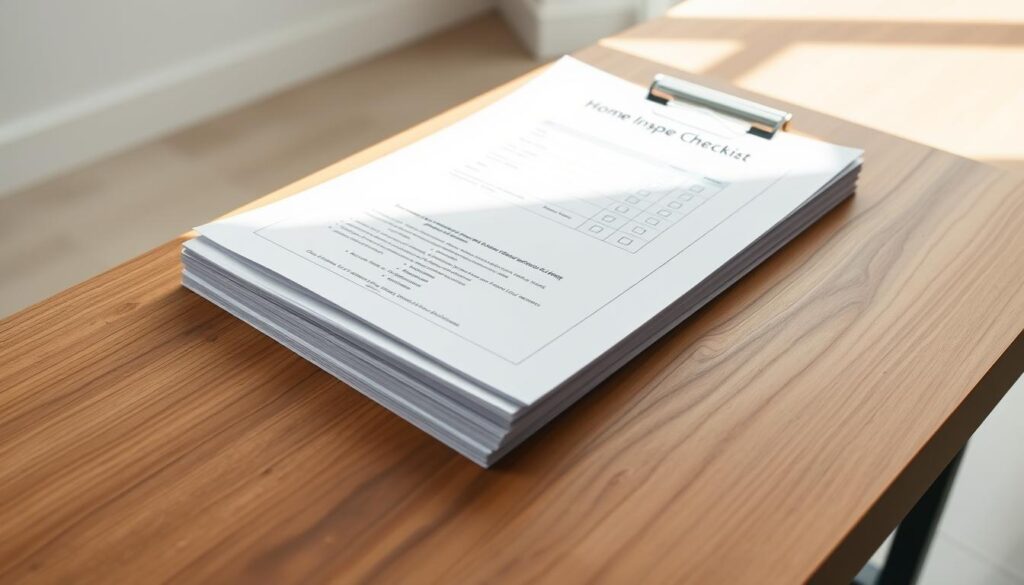
Home inspections uncover important details about a property’s state. Inspectors check various systems and structures for issues that might not be obvious at first glance.
Common Red Flags to Watch For
- Significant foundation cracks
- Water damage signs
- Outdated electrical systems
- Roof structural problems
- Potential mold or pest infestations
Professional Inspection Checklist
A detailed home inspection usually includes:
- Structural integrity assessment
- Roof and exterior evaluation
- Plumbing system check
- Electrical system review
- HVAC system performance
“Knowing is half the battle in real estate purchasing” – Real Estate Professionals
Documentation Review Process
Buyers should ask for and examine:
- Previous repair records
- Renovation permits
- Disclosure statements
- Property tax documents
Professional tip: Always negotiate repairs or price adjustments based on inspection findings to protect your investment.
Understanding Market Conditions and Timing

Buying a home in the real estate market needs smart timing and knowing the current conditions. Your choices can greatly affect your investment’s success. The current market offers special chances for those who know how to find them.
Recent data gives us important clues for buying a home. As of January 2025, the housing market shows some key trends:
- Unsold inventory is at 3.5 months, which is less than the usual six months for a balanced market
- 1.18 million homes are up for sale
- Existing home sales fell 4.9% from December 2024 to January 2025
Mortgage rates are a big deal when buying a home. The 30-year fixed-rate mortgage now averages 6.51% APR. This is a big drop from the highs before. By comparing different mortgage lenders, smart buyers can save $600 to $1,200 a year.
Knowing the market helps buyers make better choices. Important things to think about include:
- Changes in interest rates
- How many homes are for sale locally
- Local economic signs
- Seasonal trends in the market
Tools like Trulia give insights into local home prices and neighborhood data. A comparative market analysis can show you detailed info on property values. This helps you pick the right time to buy.
Essential Home Systems and Utilities
When looking for a new home, it’s key to understand the important systems. You need to check the utilities and systems that keep a house running well. This ensures a smooth and efficient living experience.
Home systems are vital for a comfortable life. Buyers should inspect these parts carefully. This helps avoid unexpected costs and ensures long-term happiness.
HVAC and Electrical Systems
Your home’s HVAC system is very important. You should pay close attention to it. Here are some things to consider:
- Filter replacement frequency:
- 1-2 inch filters: Every 1-3 months
- 3-4 inch filters: Every 6 months
- 5-6 inch filters: Every 9 months
- Age and maintenance history of the system
- Energy efficiency ratings
Plumbing and Water Quality
Water systems are key for comfort and health. Thorough inspections should evaluate:
- Pipe materials and condition
- Water pressure
- Potential water quality issues
- Signs of leaks or water damage
Energy Efficiency Features
Modern homes focus on saving energy. When checking out homes, look for:
- Energy Star rated appliances
- Proper insulation
- Window quality and sealing
- Solar panel options
Energy-efficient homes save on utility bills and often sell for more.
By carefully checking these home systems, buyers can make smart choices. This helps avoid costly surprises later on.
Legal and Title Considerations

Understanding the legal side of buying a home is key. It protects your investment and makes the process smoother.
A thorough title search is essential. Title companies look at public records to confirm who owns the property. They also check for any legal issues.
Key Title Search Elements
- Identifying previous property owners
- Checking for outstanding liens
- Verifying legal property boundaries
- Discovering any ownership disputes
Title insurance is a must-have for buyers. About 87% of buyers get help with this. It protects against legal problems after you buy.
Common Title Issues
| Issue Type | Potential Impact |
|---|---|
| Unpaid Taxes | Potential legal claims against property |
| Deed Mistakes | Complications with proving ownership |
| Undisclosed Heirs | Possible disputes over ownership |
Closing processes often involve fixing legal issues. Title insurance usually costs 0.5% to 1% of the home’s price. It’s important to include this in your budget.
Ownership Considerations
- Review all property documents carefully
- Understand different types of ownership
- Get legal advice if you’re unsure
- Make sure all signatures are on closing documents
Getting professional help can make a big difference. It ensures your home purchase is secure and confident.
Future Growth and Investment Opportunity
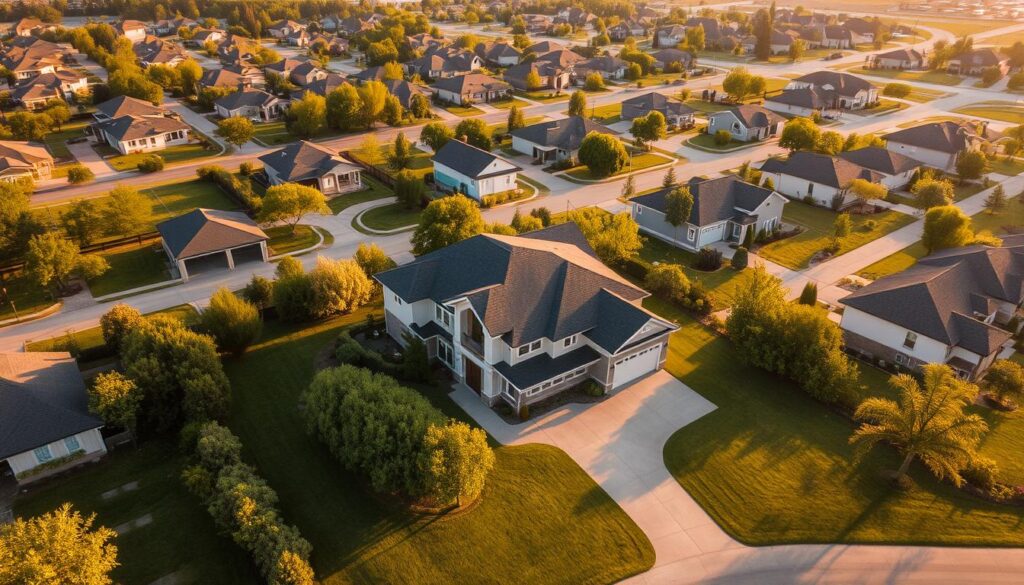
Understanding a property’s long-term investment value is key in real estate. It’s not just about the current price. It’s about seeing where the property could grow in the future.
Smart investors look at many things to make their investments work. They consider how the property might increase in value and what returns they might get.
Property Value Trends
When looking at property value trends, keep an eye on these:
- Historical price increases in the area
- How the neighborhood is growing
- Any new infrastructure
- What’s happening in the local economy
Usually, property values go up by 3-5% each year when the economy is stable. But in cities, they can rise by 10-20% because of how desirable they are.
Development Plans in the Area
Looking into future development plans can show big investment chances. New infrastructure, commercial projects, and urban renewal can really boost property values.
- Check out city plans
- Go to local meetings
- Talk to real estate experts
- Look at infrastructure plans
Resale Considerations
When evaluating a property, think about how easy it will be to sell it later. Important factors include:
- How close it is to amenities
- The quality of local schools
- Neighborhood safety
- Any future improvements
By studying these points, investors can make smart choices. They can find properties that will grow in value and give good returns over time.
Storage and Space Optimization
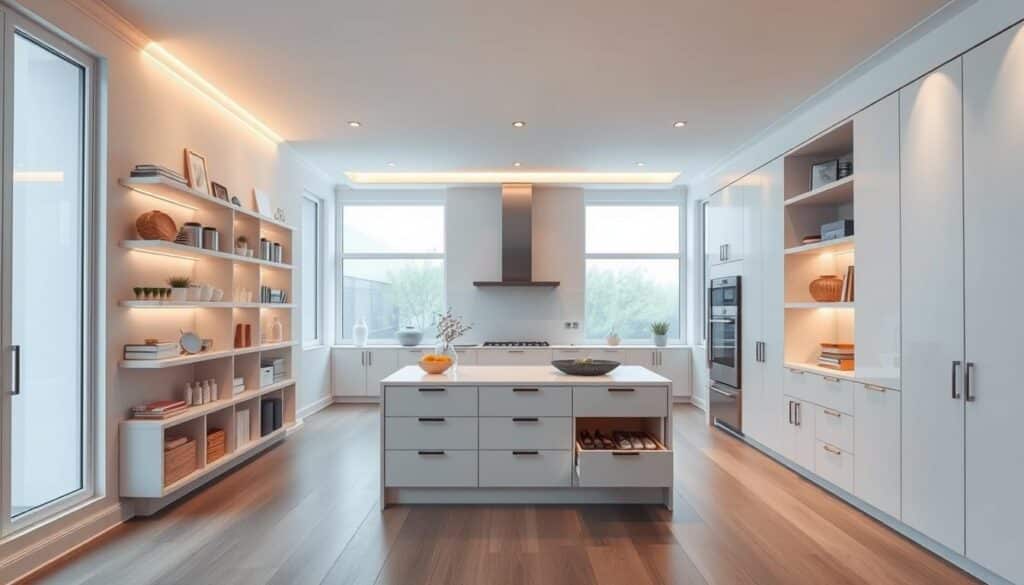
When looking for a new home, storage space is key. Amazingly, 70% of buyers say storage is a must-have in their dream home.
Optimizing space is more than just having enough room. It’s about finding smart ways to store things. This means finding spots that can change how you keep your stuff.
- Evaluate closet dimensions and quality
- Check kitchen storage capabilities
- Inspect possible bonus storage areas
- Consider multipurpose furniture options
Using vertical space can really help. Wall-mounted shelves, over-door organizers, and built-in cabinets can make the most of small areas.
| Storage Area | Optimization Possible | Homeowner Satisfaction |
|---|---|---|
| Kitchen | 30% more storage | 50% better functionality |
| Garage | 20% more room | 75% use for extra storage |
| Home Office | Organized supplies | 60% say it boosts productivity |
Good space planning is more than just storing things. It’s about making a home that fits your life. Smart design can turn small areas into tidy, useful spaces.
“Space is the breath of art” – Frank Lloyd Wright
Understanding HOA and Community Rules
Getting to know Homeowners Associations (HOAs) is key for first-time buyers. With 75.5 million Americans in HOA communities, knowing the rules is vital. It can greatly affect your home-buying journey.
HOA Fees and Financial Considerations
First-time buyers should plan their finances carefully. The average HOA fee in the U.S. is $291 monthly, or $3,500 a year. These costs cover services and upkeep, but can differ based on where you live and what’s included.
- Average monthly HOA fee: $291
- Annual HOA fees: Around $3,500
- Potential property value increase: 5-6% in HOA communities
Community Amenities and Benefits
HOAs often have great perks that make living there better. Over 70% of HOAs have recreational facilities like:
- Swimming pools
- Fitness centers
- Parks and green spaces
- Clubhouses
Neighborhood Regulations to Consider
About 70% of HOAs have rules about what you can and can’t do. These might include:
- Exterior property modifications
- Vehicle parking
- Landscaping requirements
- Pet ownership
“Understanding HOA rules before purchasing can save you significant stress and possible conflicts later.” – Real Estate Expert
Interestingly, 25% of homebuyers see HOA fees as a big deal. While 80% of HOA members are happy, 10% have thought about selling because of HOA issues.
Safety and Security Features
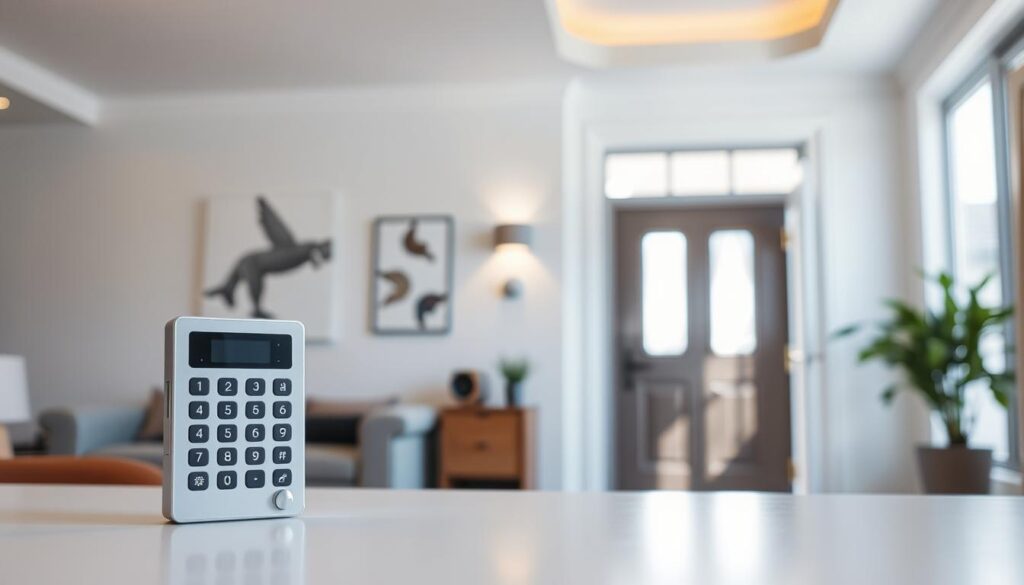
When looking for a new home, safety is key. It’s not just about locks and alarms. You need a full security plan.
Here are the top security features to look for:
- Robust exterior door locks, like deadbolts
- Functional window security mechanisms
- Strategic exterior lighting
- Integrated alarm systems
- Perimeter fencing
Home security has changed a lot with new tech. Now, you can have smart homes and advanced monitoring systems.
| Security Feature | Potential Crime Reduction |
|---|---|
| CCTV Surveillance | 40% decrease in incidents |
| Gated Community | Up to 30% crime rate reduction |
| Smart Visitor Management | 60% management efficiency |
Investing in security can really boost your home’s safety. Single women, for example, often choose places with strong security.
Think about crime rates, community watch programs, and environmental risks. Homes with good exteriors, clear views, and security measures are safest.
Your home should be a sanctuary, not just a structure – security is the foundation of peace of mind.
Outdoor Space and Landscaping
When looking at homes, the outdoor space is key. Your yard is more than green space. It affects your home’s value, lifestyle, and upkeep.

It’s important to know about outdoor spaces. Almost 80% of homeowners say landscaping boosts property value. This makes it a big deal when buying a home.
Yard Maintenance Requirements
Different yards need different care. Here are some things to think about:
- Average lawn size (about 10,000 square feet) needs regular care
- Native plants can cut water use by 50%
- Landscaping costs can be $500 to $3,000 a year
Privacy Considerations
Think about privacy when looking at yards. Good landscaping can block views and add seclusion.
| Privacy Strategy | Effectiveness | Average Cost |
|---|---|---|
| Evergreen Hedges | High | $30-$50 per plant |
| Wooden Fencing | Medium-High | $15-$45 per linear foot |
| Decorative Screens | Low-Medium | $100-$500 |
Outdoor Living Space
Look closely at outdoor living areas. A well-designed exterior can add to your living space and appeal.
- Patio areas can return up to 200% of their cost
- Professional landscaping can raise home value by 15%
- Think about sun, drainage, and the yard’s shape
Knowing about outdoor spaces helps you choose wisely when buying a home.
Buying a home is more than just the initial cost. It’s about planning for maintenance and repairs too. For example, HVAC and water heaters need to be replaced every few years. This can cost between $900 and $7,000.
It’s smart to save money for these big expenses. Replacing a roof can cost about $9,000. Fixing the foundation might set you back around $5,000. Keeping an emergency fund for repairs is a good idea. It helps protect your home from unexpected costs.
Keeping an eye on your home’s systems can save you money in the long run. Regular checks and maintenance can prevent big problems. Knowing when to replace major parts helps you budget better and keeps your home’s value up.
Don’t forget, owning a home means more than just mortgage payments. Things like energy bills, appliance upkeep, and maintenance add up. Planning ahead and staying informed can turn financial worries into smart investments in your home.

